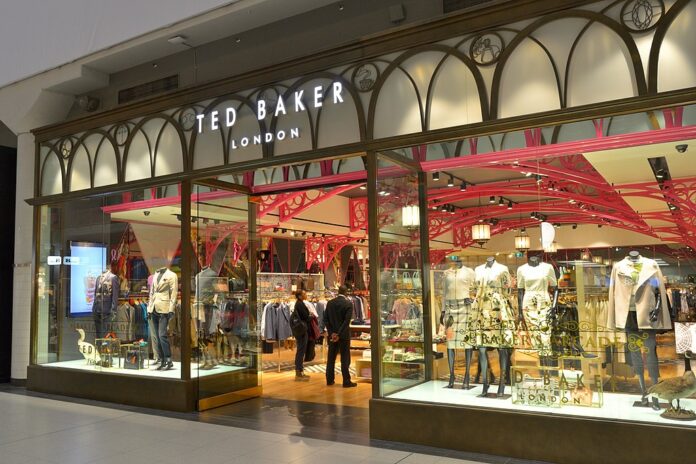Authentic announces a partnership with United Legwear and Apparel Co to handle Ted Baker’s UK and European e-commerce, just days after shutting down its remaining physical stores.
Ted Baker‘s owner, Authentic, is set to announce a new strategic move to relaunch the brand’s online presence in the UK and Europe. The decision comes on the heels of closing the last of Ted Baker’s physical stores in Britain. According to sources, Authentic has partnered with United Legwear and Apparel Co (ULAC) to manage Ted Baker’s e-commerce operations in these regions.
The closure of Ted Baker’s remaining stores, including a notable location at London Bridge, marks a significant shift for the brand, which has been struggling with retail challenges. The decision follows a breakdown in discussions between Authentic and Frasers Group, the high street empire led by Mike Ashley, which previously managed Ted Baker’s UK stores.
Embed from Getty ImagesThe announcement of ULAC’s new role in managing Ted Baker’s online operations is expected on Wednesday. ULAC, which already handles Ted Baker’s presence in the US and Canada, will now oversee the brand’s digital retail activities in Britain and Europe. This partnership is part of Authentic’s strategy to maintain Ted Baker’s brand presence and reach consumers through e-commerce, even as its physical stores are shut down.
Earlier this year, Ted Baker’s previous operating partner, No Ordinary Designer Label (NODL), faced financial difficulties, leading to the closure of 31 UK shops and resulting in over 500 job losses. The collapse of NODL and the subsequent job losses underscored the turbulent period for Ted Baker, which began in 2019 when founder Ray Kelvin left amid allegations of inappropriate behaviour.
Authentic, led by entrepreneur Jamie Salter, acquired Ted Baker in 2022 for approximately £210 million and subsequently delisted the retailer from the London stock market. The shift to an online-focused strategy aims to adapt to changing retail trends and sustain Ted Baker’s brand presence in a competitive market.
Analysis:
Political:
Ted Baker’s transition from physical stores to an online-only model reflects broader shifts in retail influenced by political and economic conditions. Policy changes related to high-street retail and e-commerce regulations can impact how brands adapt to market pressures. The closure of Ted Baker’s stores highlights the challenges faced by traditional retailers in adapting to evolving political and economic landscapes.
Social:
The shift in Ted Baker’s strategy highlights societal changes in shopping behavior. The growing preference for online shopping over physical stores has been accelerated by factors such as convenience and changing consumer habits. Ted Baker’s move to focus on e-commerce aligns with this trend and reflects the broader social shift towards digital retail solutions.
Racial:
The racial impact of Ted Baker’s transition is minimal in this context. However, the brand’s future success in the online space will depend on its ability to appeal to a diverse customer base and address issues of inclusivity and representation in its marketing and product offerings.
Gender:
Ted Baker’s brand and product offerings have historically included a mix of men’s and women’s fashion. The shift to online management may affect how the brand addresses gender diversity in its product lines and marketing strategies. The brand’s ability to cater to diverse gender preferences through its online platform will be crucial for maintaining its market appeal.
Economic:
Ted Baker’s financial troubles and store closures underscore the economic pressures faced by retailers in a competitive market. The move to e-commerce is a strategic response to these pressures, aiming to capitalize on the growing online shopping trend while reducing the costs associated with maintaining physical stores. This transition reflects broader economic trends in retail, where digital sales channels are increasingly vital for brand survival and growth.
